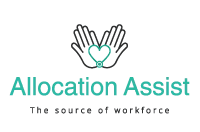Dr. Rudolf Viktor Kolozsvari is a highly skilled interventional cardiologist with 24 years of experience in general and interventional cardiology and cardiac imaging across the USA, UK, and Hungary. His expertise includes diagnosing and treating a wide range of complex heart diseases using advanced imaging and catheter-based techniques, including coronary artery interventions. Dr. Rudolf is a certified cardiac CT expert and a Fellow of the European Society of Cardiology (FESC). In addition to his clinical work, Dr. Rudolf is dedicated to advancing medical education and research in interventional cardiology. His extensive research into cardiac imaging and interventional cardiology, including his PhD research, has been published in international peer-reviewed journals. In our interview with Dr. Rudolf Kolozsvari, an interventional cardiologist, you’ll learn more about his journey and expertise. Before relocating to the UAE in October 2024, Dr. Kolozsvari was a senior consultant and lecturer at the University of Debrecen in Hungary.
Thank you so much for your time today, Dr. Rudolf. Could you start by talking about your background, training, and experience before you relocated to Dubai?
Thank you very much for having me here. First of all, I’d like to say thank you for all you have done to help me come to Dubai. Where to start? I graduated in 2000 from the University of Debrecen, Hungary, in Central Europe, where I started my cardiology training. Then, I decided to go to New York to do my internal medicine residency for a year. Then, my professor in Hungary asked me whether I wanted to come back and do the cardiology board. And I said, yeah, why not? So I went back to Hungary in 2006, did my cardiology board, and also started my interventional cardiology training in 2008 or so, which took four years. After that, I went to England, to Hull in northern England, where I underwent four months of very intensive training in interventional cardiology.
Then, when I got back to Hungary in 2012, I did my license to be certified as a specialist in interventional cardiology. In the meantime, I did my PhD, as I was also interested in academic research. Then, up until I came to Dubai last year, I was a consultant in a teaching hospital, busy with clinical work, teaching, and supervising PhD students. I was also part of the medical directory board and the international education board, which was responsible for 6,000 or 7,000 international students. This role involved travelling the world and introducing ourselves, bringing students to our university. That was how I first visited Dubai in 2015, to oversee the examination and interviewing of students.
Why did you choose to relocate to Dubai specifically?
Honestly, I could say a lot of things – the weather is nice, the salary is good. But it’s not just about that. Even from the first time I came to Dubai, I realized this was where I wanted to be. There is such a sense of freedom here. There are many people here from so many nationalities, and, actually, everybody’s at the same level; nobody’s more special than the other one. If you go to a store, they smile at you.
When you go to any government building, they help you right there, so life is so convenient, and it’s clean. And last but not least, very important as I have little kids, it’s safe here. It’s safe on the streets. When my children get to their teenage years, I wouldn’t be worried when they go out to the street at night. And there’s such a high respect for the other person here, such a high respect for the other people’s property here. What I mean is, I just don’t even close my car; I just leave it like that, and nobody will touch anything. So, there are a lot of benefits to being in Dubai. But I think these kinds of things, safety and security, are very important.
One of the things I really enjoyed about working with you is your character. You are so resilient, humble, and dedicated. We’ve also had very positive feedback from the hospital management about you; they absolutely love you. So, I wanted to ask for your advice on the qualities needed to be successful here in Dubai.
Thank you for all these positive thoughts. Some people say that I smile a lot, and I always tell them it’s good to smile. I’m having my own problems like everybody else, but it’s good to keep a positive approach.
I remember we worked together for a full year on the relocation process, and there were some ups and downs. I had been trying alone for about a year before that, before I found out about Allocation Assist. But then I think the most important thing that kept me going was that we decided that we wanted to come here.
I’ve been to New York. I’ve been to the UK, and I was accepted there. So, we went with a positive attitude that Dubai would also be good. Also, I had great support from my precious wife. So that always gave me a lot of strength and positivity to make it all the way through.
What advice would I give? Just be patient. There’s huge demand for doctors in the UAE and in the rest of the Gulf area. I was anxious after my first interview, as I felt it hadn’t gone so well, but then you called me and said, “Dr. Rudolph, don’t worry, we’ll get you out here.” So that was echoing in my mind all the time. So my other advice is to be positive. You will make it, especially with the help of Allocation Assist.
I remember our first Zoom call. When I speak to a doctor, I can get a sense that you have what it takes to be successful in Dubai, which is not always easy. So then I believe in that doctor; I just know that you’re meant to be here. You have to have certain characteristics to last. I really find you so inspiring.
While I was going through the process, some colleagues asked me, “How do you know that Allocation Assist is not one of those fake agencies?” They were telling me to be careful. But I remember when we were on a Zoom call, and you said, “Okay, so let me show you around my office.” Then you took your laptop around to show me the office and all your colleagues and said, “Well, this is what we are. Do you believe us?” Also, there was a German doctor who highly recommended you.
So, after speaking to you, I knew that I could trust Allocation Assist, and we started our journey together. Before I started working with Allocation Assist, I had struggled on my own for eight months to get my specialist DHA registration. Then with your help, I got my consultant license smoothly, and it was so easy after that. I just had to send all my documents, and then you helped me with everything. So, I wished I had contacted you right from the beginning; it would have made things much easier.
That is one thing that a lot of doctors find difficult about this process – the licensing and the documentation. It is complex because, in the UAE, we have people coming from so many different nationalities, training systems, and backgrounds. Every doctor is unique, and everything has to be checked. The system and regulations ensure everything is correct and safe. So, it can be a bit frustrating and stressful for the doctors, but we have years and years of experience to check the documentation. Unexpected complications do arise in a certain number of cases, even if we try our best, and it’s all about communication with the doctors. So that’s something I really work on with our team so that the doctors are kept up to date.
The other thing is, with Allocation Assist, you have the connections and netw



